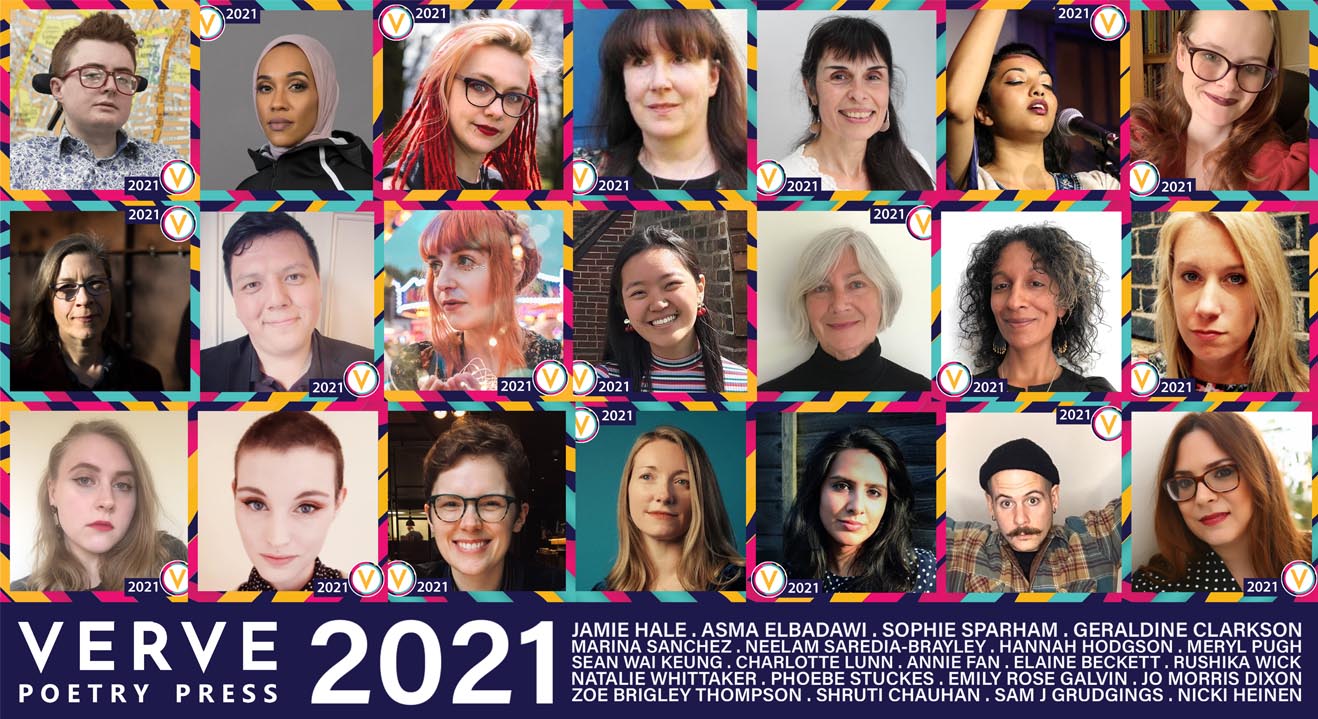
Verve is beyond proud to announce that we will be publishing 21 new pamphlets and collections in 2021 from accomplished and new voices. No matter your taste in poetry, you are bound to find a new favourite.
See our list of releases below:

Verve is beyond proud to announce that we will be publishing 21 new pamphlets and collections in 2021 from accomplished and new voices. No matter your taste in poetry, you are bound to find a new favourite.
See our list of releases below:
By continuing to use the site, you agree to the use of cookies. more information
The cookie settings on this website are set to "allow cookies" to give you the best browsing experience possible. If you continue to use this website without changing your cookie settings or you click "Accept" below then you are consenting to this.